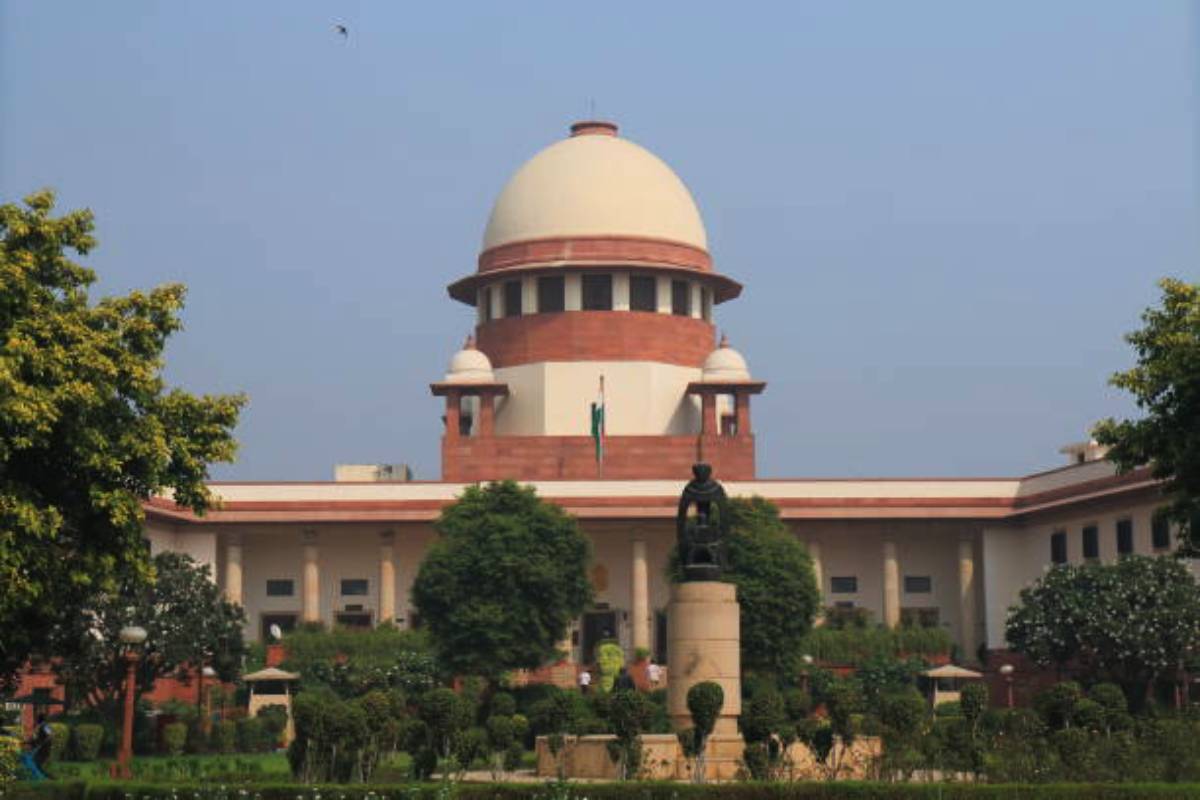India’s Got Latent: SC issues notice on YouTuber Ashish Chanchlani’s plea against FIRs
SC issues notice on YouTuber Ashish Chanchlani’s plea to quash or transfer FIR in India’s Got Latent case; tagged with Ranveer Allahabadia’s petition.
The apex court reserved the order on the conclusions of the arguments by both the sides, including Solicitor General Tushar Mehta.

File Photo
The Supreme Court on Thursday reserved its verdict on a batch of cross petitions relating to Shiv Sean centric Maharashtra political crisis as former Maharashtra Chief Minister Uddhav Thackeray faction urged the court to restore the status quo ante since the then Governor Bhagat Singh Koshyari had acted beyond his powers in recognised Chief Minister Eknath Shinde faction, administering him oath and earlier asking Thackeray to face floor test.
A five-judge constitution bench of Chief Justice D Y Chandrachud, Justice M R Shah, Justice Krishna Murari, Justice Hima Kohli and Justice P S Narasimha reserved the order on the conclusions of the arguments by both the sides including by Solicitor General Tushar Mehta who appeared for Governor Koshiyari, that were spread over nine-days starting on February 21.
Advertisement
The issues on which arguments that were advanced in the course of the hearing included validity of the Governor Koshyari’s decision to ask former chief minister Uddhav Thackeray to face floor test, then asking rebel faction leader Eknath Shinde to take oath as chief minister and in a way recognising Shinde faction as a group.
Advertisement
Besides, this other question was the power of the Speaker to act under the Tenth schedule of the constitution and whether he could be incapacitated from acting under anti-defection law if a notice seeking his removal from the office is pending. The other question was whether a faction with a backing of a section of the members of the legislative party alone could be termed as a party.
Yet another issue was whether 2016 Supreme Court judgment by a five-judge constitution bench in Naban Rabia case (relating to 2016 political crisis in Arunachal Pradesh) which had ruled that a Speaker stands disabled to act under the tenth schedule – to curb defection – requires to be revisited and referred to a larger seven-judge bench.
Prior to the hearing on the main matter that had commenced on February 21, the constitution bench had a three-days hearing on whether 2016 judgment in Nabam Rabia requires reconsideration by a larger seven-judge constitution bench. However, on February 17, the bench said that it would consider this aspect along with the other issues arising in the main matter.
Going by the tenor of the hearing and the observations that came from the bench particularly by the Chief Justice Chandrachud in the course of the hearing yesterday, were not comforting for the Governor. Yesterday (March 15), the bench had observed that the Governor should not enter into the area of intra-party feud which precipitates the fall of a government and called Maharashtra political crisis a serious issue for democracy and “a sad spectacle for democracy.”
In today’s hearing both senior advocate Kapil Sibal and Abhishek Manu Singhvi argued that in parliamentary democracy, it is the political party that holds primacy and not the faction of a political party. The court was told that the scheme of the constitution recognises alliance between the political parties for the purpose of the formation of the government and not between a faction (Shinde faction in instant case) and a political party – BJP.
The court was told that Governor Koshyari by meddling in the inter-party feud of Shiv Sena precipitated the split in the Shiv Sena leading to the fall of Uddhav Thackery government.
In a poser, Chief Justice Chandrachud today asked that if the strength of a ruling party gets reduced by half and given the principle of collective accountability, still the Governor cannot intervene and act.
Sibal said that the budget session was slated and these MLAs belonging to the Shinde faction could have voted against it. He said that they could have followed Madhya Pradesh’s example and had resigned from the assembly as was done by the MLAs belonging to the Jyotiraditya faction and recounted the election.
Contesting the argument of Shinde camp that the subsequent development justifies Governor Koshiyari’s action and seeking restoration of status quo ante, the court was told that anything flowing from an illegal act has to go and cannot survive.
Earlier countering the argument of the rival Uddhav camp, senior advocate Neeraj Kishan Kaul appearing for Shinde camp had said that political party and legislative party are conjoined and connected and the argument made by Uddhav Thackeray camp that the other fictions represent legislative party and not political party is a fallacy. He had also said that dissent is the hallmark of democracy.
Chief Minister Eknath Shinde camp had earlier apprised the Supreme Court about Shivs Sena party’s pre-poll alliance with BJP and reiterated their claim on the right of the party.
Advertisement